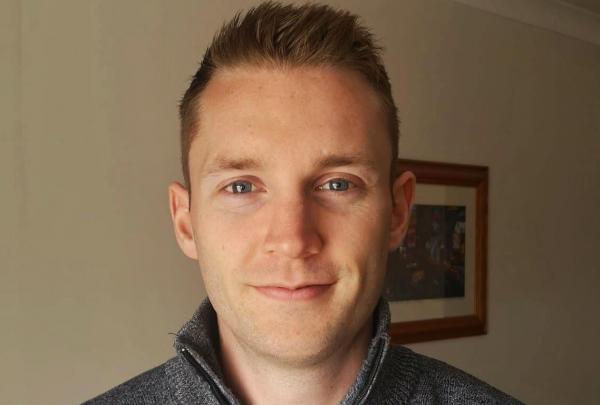Over the past year I have found the following fundamental principles developed through my short time as an Army reservist to be absolutely invaluable, and I hope that, just as they have for me, they might provoke reflection and inspire confidence in your own abilities to develop as a leader.
Connor Hamilton is a 26-year-old Msc physiotherapy student at Robert Gordon University, a British Army reservist, strength and conditioning coach and the Scottish officer for the CSP Student Reference Group.

'To Lead'
Over a year of Covid-19 restrictions have undoubtedly taken their toll on every aspect of our lives as physiotherapy students. From the way our modules and courses are delivered, how we experience and access clinical placements and even on the increasing expectation we put on ourselves to perform. The very fabric of the profession we are training to enter has experienced significant and rapid change. These are exceptional times, and exceptional times demand exceptional leadership, at every level, at all times, from every one of us.
I am by no means an expert, in fact the more I learn and look to develop my own leadership abilities, the more I come to understand that, on more occasions than I would like to admit, I have shown ineffective leadership to the detriment of the team around me. Over the past year I’ve found these fundamental principles developed through my short time as an Army reservist to be absolutely invaluable, and I hope that, just as they have for me, they might provoke reflection and inspire confidence in your own abilities to develop as a leader in your university, on clinical placement and in practice. As Field Marshall Bernard Montgomery once stated;
Leadership is the capacity and the will to rally men and women to a common purpose and the character which inspires confidence.
Vision
- Define a clear purpose. In any and every situation, where you have a clearly defined purpose you have a clear direction. Purpose creates a unifying cohesion within your team driving you towards a common goal or outcome. Start as you mean to go on with a vision that clearly communicates what you and your team are looking to achieve.
- Lead by example. It goes without saying, as an individual within a team environment, you cannot lead your team anywhere you’re not willing to go to yourself. When you and your counterparts lead by example, you promote a culture of integrity. Selfless commitment pulls individuals together into an effective team that want to work with, and more importantly, for each other.
Support
- Encouraging confidence. Every team member has something to offer, recognising and communicating individual strengths and weaknesses and collaboratively delegating team roles accordingly encourages a culture of mutual respect. Playing to your teams’ individual strengths in a fair and consistent manner will inspire confidence in those around you. The strength of a team often comes from its diversity of experience and thought. A good idea can come from anyone at any time, so where we value every individual's contribution and opinion as we would our own, we contribute to building a strong culture of trust, communication and respect.
Challenge
- Demand high performance. Leadership, at its core, is about empowering those around you to perform at their best. Getting the best out of yourself and your team is a constant balancing act. Appropriate challenge can unlock potential. Challenge beyond ability, however, can be damaging to morale, lowering confidence. Setting realistic goals that are specific, measurable and realistic, testing the abilities of the team as a whole are much more likely to produce a consistent level of high-quality performance.
Above all 'Remember, leadership is not about you, it is about the people you serve. Serve them well and they will serve you' (Centre for Army Leadership)
If you aspire to lead and develop your leadership skills, consider applying to the Council of Deans of Health’s Student Leadership programme (before 25 April). There are 55 fully-funded places on offer. The programme is for pre-registration AHP students currently in the first or second year of their undergraduate degree or in the first-year of their postgraduate degree.
Number of subscribers: 1